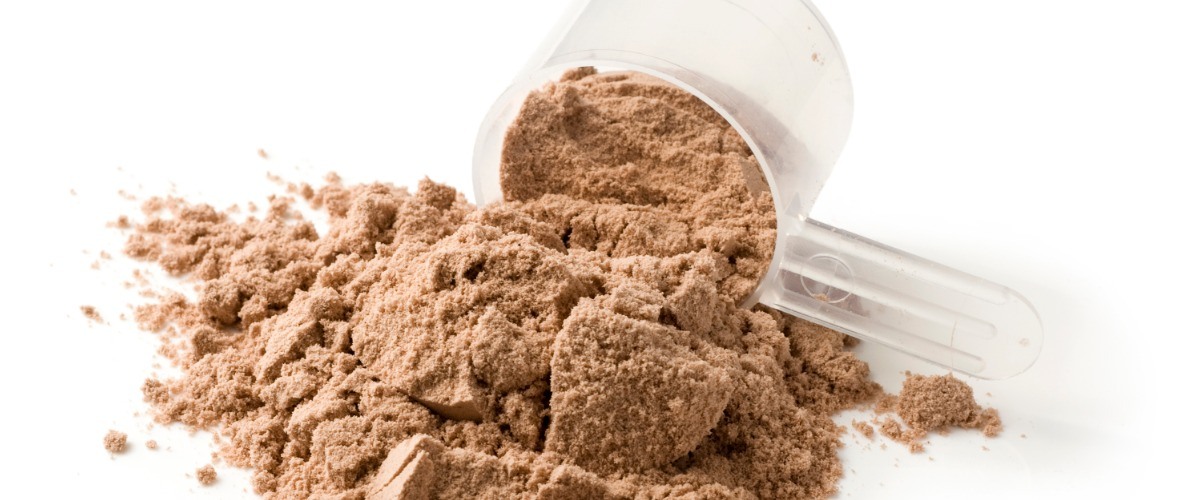A tub of whey protein sitting on top of the refrigerator is something of a universal symbol for people trying to build muscle or start eating better. You know it’s popular, but do you know why protein has become such a staple in households across the globe?
While healthy dieting and consistent exercising should be the foundation of your wellness, protein supplements have been shown to be valuable for achieving your goals, improving your health, and extending your longevity.
What is Whey Protein?
Have you ever opened a container of yogurt to find an opaque liquid sitting on top that you have to mix in? This is whey, a byproduct of milk and cheese production, and it contains a variety of vitamins, minerals, and, most importantly, amino acids.
Amino acids are the building blocks of muscle tissue and whey is a high-quality source of essential amino acids. It’s also cost-effective to produce and sell, and that’s why companies filter the whey liquid and turn it into the low-fat, high-protein powder you’re familiar with.
What’s the big deal with this cheese byproduct? Can it really make that much of a difference in your health? Here are several proven benefits of whey protein.
Protein Synthesis
Studies show that protein can promote protein synthesis, or the creation of muscle protein. Exercise creates microtears in your muscle tissue and the amino acids found in protein support repair and recovery processes.
Certain illnesses, such as muscle-wasting diseases, can also cause damage to muscle tissue, and protein has been shown to significantly reduce the rate of muscle breakdown.
As we age, muscle loss becomes more common. Studies show that two of the best ways to prevent age-related muscle loss is with a consistent resistance training program and whey protein supplementation.
Muscle Building
If you want to build bigger muscles, you need to cause microtears in your muscle tissue through resistance training, then focus on the best nutrition to support recovery. It’s during the recovery process that your muscles will grow. Studies show that one of the best ways to support the muscle recovery process is with whey protein.
What do muscle tissue and whey protein have in common? Amino acids. Lean muscle tissue is made up of amino acids while whey protein provides amino acids once digested. After a tough workout, you can drink a protein shake to provide a quick and abundant supply of amino acids to the muscle to kickstart repair processes.
One study found that consuming protein after a workout was significantly more effective for promoting muscle building than carbohydrates and soy.
Again, it’s important to remember that you need to be engaged in a comprehensive and consistent workout program. Just sitting around the house and drinking protein will not give you bigger muscles.
Post-Workout Soreness
Whether you’re exercising for bigger muscles, better endurance, or improved cardiovascular health, you can’t escape post-workout soreness.
It’s not the end of the world but delayed-onset muscle soreness (DOMS) can be annoying as it limits your movements and makes easy tasks like squatting more difficult.
Studies show that supplementation with whey protein can reduce post-workout inflammation and soreness.
Weight Management
Do you know what’s considered more difficult than losing weight? Maintaining your goal weight. While the foundation of weight management should be focused on diet and exercise, whey protein can also help.
Studies show that whey protein can boost your metabolic response and suppress your appetite. What’s more, whey protein can promote lean muscle tissue growth. The more lean muscle tissue you have, the more calories you burn while at rest.
Other Benefits for Consideration
While by no means a cure-all, the research focusing on whey protein and the following medical conditions seems to be promising:
- High Blood Pressure: One study found that systolic blood pressure significantly decreased after only six weeks of protein supplementation.
- Diabetes: Protein was shown to have a glucose-lowering effect in those subjects with type-II diabetes.
- Cognitive Health: For adults with a high level of mental fatigue, studies suggest that protein supplementation can improve cognitive function.
- Bone Health: While further research is needed, studies suggest that protein supplementation can preserve fat-free mass (muscle tissue) while supporting bone health.
- Longevity: Some studies recommend whey protein supplementation as a complement to a healthy diet and exercise program to increase fitness levels and overall longevity.
Alternatives to Whey Protein
Since whey is a dairy-based product, it may not be suitable for some lifestyles or medical conditions. Thankfully, there are plant-based protein options that provide similar benefits. Brown rice, pea isolate, pumpkin seed, and chia seed are some of the best ingredients for a plant-based protein supplement.
The problem is that many plants are not considered complete proteins because they lack one or more essential amino acids. There is an easy way around this: combine two or more plant-based ingredients. Many reputable brands already do this, ensuring you are receiving all of the essential amino acids needed.
Whey Protein: Make it a Part of Your Routine
Whey is a readily-available, cost-effective, and scientifically-proven supplement that can support your fitness goals and longevity. Focus the foundation of your success on a healthy diet and exercise program, supplementing with a serving of whey daily or as directed by your healthcare provider.

